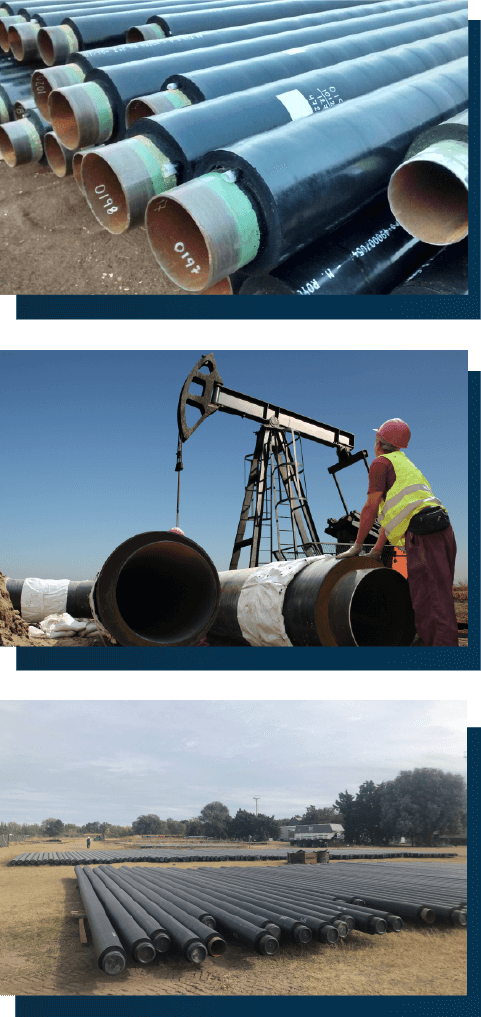THERMAL PATSS™
Aislantes Térmicos
AISLACIONES TÉRMICAS DE TUBERÍAS EN POLIURETANO EXPANDIDO RÍGIDO PARA EL MANTENIMIENTO DE LA TEMPERATURA
Con el objetivo de disminuir las pérdidas de calor en las tuberías de acero, ERFV, o cualquier otro material, las cañerías son revestidas con una capa de POLIURETANO FOAM.
El revestimiento térmico evita la precipitación de PARAFINAS o formación de HIDRATOS.
En el caso de transporte de crudos pesados, el revestimiento permite mantener la temperatura en ductos sin aporte de calor externo. El coating mantiene una baja viscosidad del crudo y disminuye la posibilidad de obturación; resultando en menores costos de operación.
PSS cuenta con una línea de producción CONTINUA de última tecnología, y un track record de más de 500 km de aislación térmica a la fecha. La línea se encuentra automatizada, lo cual facilita el control del producto. La capacidad de producción de la línea comprende el rango de tubería de 2” a 12”, con una capacidad de producción de 1.500 metros por turno de 8 hs.
Argumentaciones Tecnico-Economicas que avalan la utilización de revestimientos térmicos. Artítculo técnico publicado en revista Petrotécnia del IAPG (Instituto Argentino del Petroleo y Gas) en el mes de Febrero del año 2019
DECARGAR INFORME
PSS posee un Sistema de Aseguramiento de Calidad según ISO 9001 versión 2015, cumpliendo estrictas normas de aplicación internacionales como la normativa Europa EN 253, entre otras.
La aplicación de POLIURETANO como material aislante sobre la tubería se aplica en forma CONTINUA con equipos de última generación. Esta forma de producción posee varias ventajas; superior calidad, homogeneidad, eficiencia y control durante la producción.
La aislación térmica, es protegida con una camisa externa de POLIETILENO de ALTA DENSIDAD “aplicada” directamente sobre el material aislante (Poliuretano), asegurando una altísima adherencia entre las capas del revestimiento, cumpliendo la función de resistencia mecánica asegurando el correcto desempeño de la aislación durante la vida útil del proyecto.
Aplicación de aislación térmica según la norma EN-253.
K= 0,024 W/m°K [Test realizado en laboratorio IMA DRESDEN, Alemania]
Tubería aérea o soterrada.
En forma optativa, para condiciones más severas de uso, se instalan conductos para tracing eléctrico.
